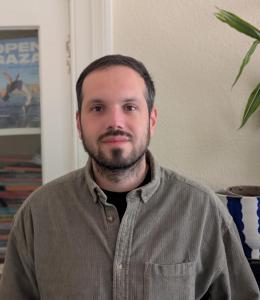
Dr Pietro Stefanini
Postdoctoral Fellow, September 2025 - June 2026
Home institution: University of Edinburgh
Pietro holds a PhD from the University of Edinburgh, where he was awarded a Politics and International Relations doctoral scholarship. His primary research interests are in the international politics of humanitarianism, empire and settler colonialism, and anti-colonial resistance. Some of his academic work has been published in Millennium: Journal of International Studies, Participation and Conflict, and by the American University in Cairo Press. He has written shorter pieces for the Legal Agenda and Middle East Eye, and has appeared as a commentator on Al Jazeera TV. Since 2021, he has been teaching undergraduate courses in history and politics, and is an Associate Fellow of the Higher Education Academy. Before moving to the UK to begin his studies, he grew up between Bologna, Damascus and Occupied Jerusalem.
Project title: Making Colonisation Humanitarian: A Genealogy of Settler Humanitarianism in Palestine/Israel
While at IASH, I will be working on a book manuscript based on my doctoral research, which deploys archival and ethnographic methods to trace a genealogy of the relationship between humanitarianism and settler colonialism, from the period of British imperial rule in Palestine, through the 1948 and 1967 wars, to the contemporary conjuncture and the destruction of Gaza. The study engages with multiple academic fields, drawing from anthropology, global history, and International Relations. It contributes to anthropological explanations of humanitarianism as an instrument of power, while also adding a settler colonial perspective to global histories of humanitarianism in the Middle East. The project builds on a tradition of IR scholarship that has sought to critique the racial hierarchies upon which the discipline rests.
The book illustrates a settler colonial modality of humanitarianism along two main axes: enabling the continuous reproduction of the settler society; and providing a mechanism for the dispossession of the Palestinian people. It demonstrates how, rather than constituting a constant dynamic throughout a century-long historical arc, the settler form of humanitarianism gains particular prominence during moments of crisis, disruptions of populations (both settler and native), and peaks in colonial violence.
